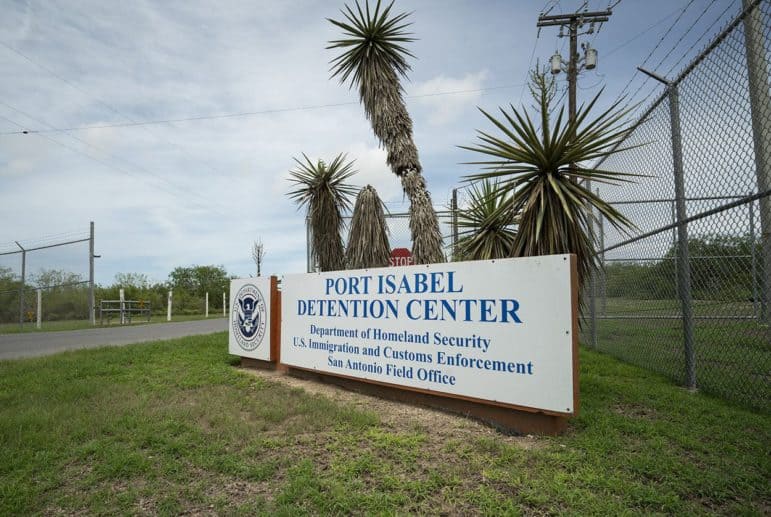
Reynaldo Leal / for The Texas Tribune
The main entrance to the Port Isabel Detention Center.
Weeks ago, a federal judge ordered immigration officials to issue a plan for reuniting migrant children with parents who had already been deported.
On Friday, when the government failed to provide one, the federal district judge, Dana Sabraw of San Diego, called it “disappointing” and “unacceptable.” He gave the government until 3 p.m. Pacific Time on Thursday to lay out a plan.
But when that deadline passed, the government said the procedure was “still undergoing final review, and will be filed with the Court shortly.”
Hours later, lawyers for the U.S. Department of Justice submitted that plan, which places a heavy burden on the American Civil Liberties Union, the advocacy group that successfully took the government to court this year to order the reunifications. The ACLU, the government said, will be responsible for locating the class members using some information provided by the government, establishing contact with parents and determining whether they wish to be reunified with their children.
In the past, the ACLU has been critical of the government for passing the onus of reunifications onto them, emphasizing in court documents that “the government must bear the ultimate burden of finding the parents.”
And last week, Sabraw chastised the federal government, telling them, “For every parent who is not located, there will be a permanently orphaned child — and that is 100 percent the responsibility of the administration.”
The missed deadline is emblematic of the ongoing chaos in the government’s efforts to reunite the more than 2,500 migrant children taken from their parents at the southwest border. In the past week, the government has reunited just 13 children with their parents, leaving 569 in government-contracted federal shelters.
Many of them are separated from their parents by the U.S.-Mexico border. Parents to 386 of those children were deported to their home countries, most to Guatemala and Honduras. The government says it has been in contact with most of those parents in the past seven days. But there are 26 children whose parents remain “under review.”
Other children are waiting to be reunited with parents who were released into the interior of the United States. The government has yet to make contact with the parents of 51 of those children.
Justice Department lawyers also wrote Thursday that parents to 163 children “indicated desire against reunification.” That number has precipitously dropped and grown again over the past several weeks, a change ACLU lawyers have called highly suspect.
“Plaintiffs have consistently raised concerns that many of these purported relinquishments were not made voluntarily,” ACLU lawyers wrote in a court document Thursday evening.
Matthew Albence, an official with U.S. Immigration and Customs Enforcement, has said every parent was offered the chance at reunification before deportation. But dozens of parents have complained that they were confused or coerced when they signed away their rights to their children. It’s one reason the ACLU has asked the government to provide more information, including contact information for all parents said to have relinquished their right to reunification — and one front of the ongoing battle over how much information about separated families the government must provide to the ACLU.
The government and the Justice Department are set to appear before Sabraw on Friday for another status conference.
